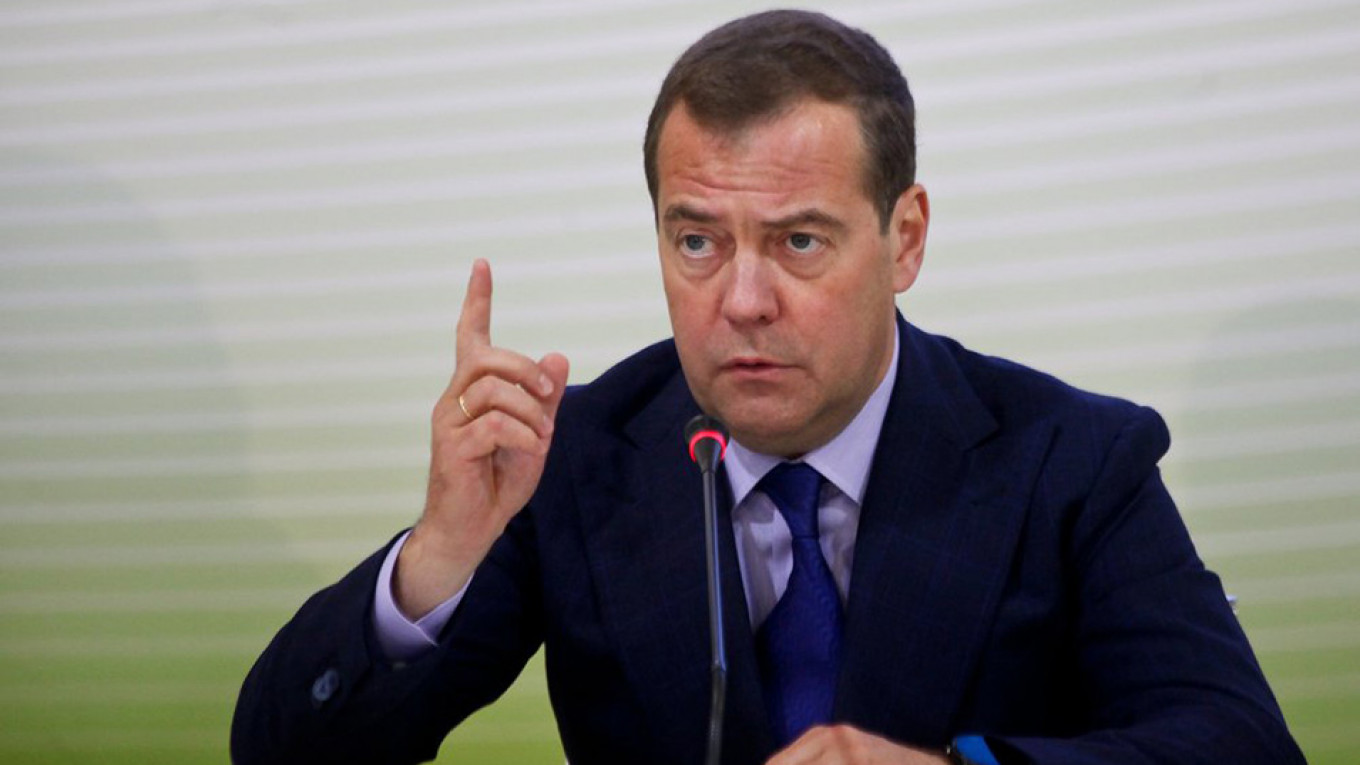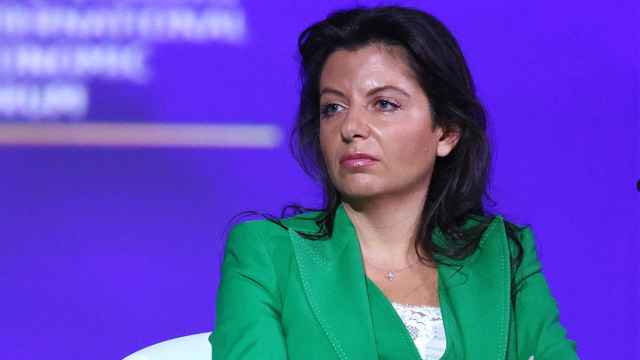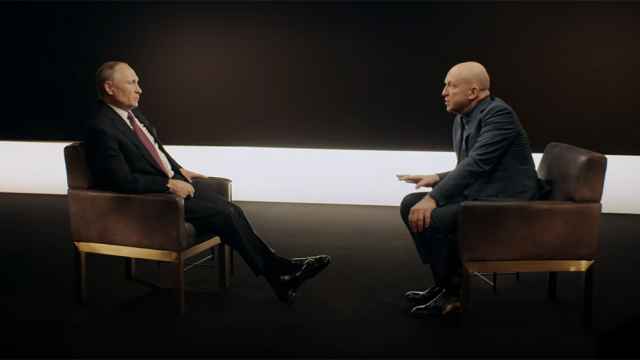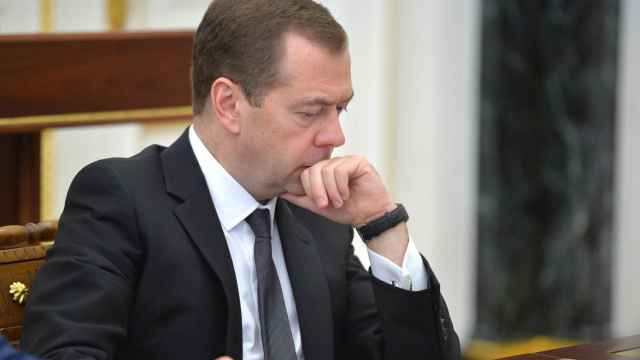When Vladimir Putin appointed his just-resigned ex-premier Dmitry Medvedev to the new position of deputy chair of the Security Council, speculation abounded as to whether this was a meaningful position or a face-saving sinecure. Now, we may have some answers — but also some new questions about the future.
In his Presidential Decree No. 175 ‘On Certain Issues of the Security Council of the Russian Federation’ of March 3, published yesterday, Putin outlines the roles and responsibilities of this new position. This is, after all, a brand new one, and also complicated by the fact that the body is, more than anything else, a constitutional iceberg.
The visible part, the regular meetings of the council itself, is high profile but of low significance. The gatherings see an array of powerful figures within the security community and other arms of government convene to discuss the important issues of the day. In theory. In practice, the meetings tend to have too-crowded agendas and pre-scripted outcomes. They are more about signalling policy decisions and resolving inter-agency disputes.
Chairing these meetings is likewise a symbolic expression of the president’s power rather than a meaningful job. Being deputy chair could easily have been little more than assistant master of ceremonies.
The real power of the Security Council rests rather in the behind-the-scenes deliberations, debates, briefings, and raw-knuckled bureaucratic struggles handled by its secretariat. Since 2008 — an unprecedented tenure — this has been the empire of Nikolai Patrushev. The hawk’s hawk, a man with a close professional (if not necessarily personal) relation with Putin and a background in the KGB and FSB, Patrushev is in many ways the equivalent of his national security adviser.
The crucial question was whether Medvedev would have any authority over Patrushev and the secretariat, and this has been answered, at least partially.
Medvedev will have a role in the “development and implementation of foreign policy,” prepare an annual report on the state of national security, and monitor the implementation of presidential instructions. Meanwhile, he will hold workshops and strategic planning meetings with other members of the council.
So far so ambiguous. This could mark a real presence in foreign affairs or mask a lot of activity with little real impact. More telling is that Medvedev acquires the right to appoint (which by extension implies also to dismiss) a range of officials, including the first deputy secretary. These were previously in Putin’s gift, but in practice were Patrushev’s hires. This wasn’t an issue, because Putin wasn’t threatened by Patrushev, and Patrushev was fully supportive of Putin.
However, the Patrushev-Medvedev relationship is more complex on political, personal and ideological grounds. Patrushev was considered the deputy chair de facto before this latest move, and even beforehand had his qualms about Medvedev who is, after all, no dove but certainly more pragmatic in his foreign policy inclinations.
More to the point, if Medvedev wants to look like more than a charity case on his way to retirement, he needs to demonstrate his political virility. Putin appears to have given him the chance to do so by using his new position meaningfully. This might take the form of policy initiatives or of building his own team in the secretariat. The first would likely be an implicit challenge to the harder-line Patrushev, the latter undoubtedly an explicit one.
There are several preliminary implications to be drawn. First of all, they ironically seem to make the Security Council more powerful by making it more of a genuinely political rather than administrative nexus. Given Putin’s recent suggestion that, contrary to much earlier speculation, he would not take the job of chair of the restructured State Council after the presidency, it suggests a role in the Security Council may be being considered as a possible landing spot for him.
Admittedly, none of this ought to be taken at face value. As Ben Noble has noted, part of the “2024 strategy” seems to be maintaining ambiguity about Putin’s future. The aim is both to retain political manoeuvrability — who knows what the situation will be in 2024, or who he might find as potential successor? — and to avoid his becoming a “lame duck president,” which might trigger serious intra-elite disputes.
This way Putin can also again demonstrate that he looks after his loyal foot soldiers. This is important both for his personal legitimacy and also for someone who, in due course, may be looking to transition out of the top job and will rely on the loyalty and gratitude of others.
It also keeps Medvedev in play as a potential low-risk, low-impact interim president (however implausible that may seem at present).
Crucial relationship
Meanwhile, though, the Medvedev-Patrushev relationship will be crucial and something to watch. The emphasis of the deputy chair’s role seems to be on foreign policy, maybe because Medvedev remains (a little) more popular and (a little) more viable abroad.
It remains to be seen whether he will get any real traction in on all-important domestic issues, especially as the Security Council starts preparing a new Public Security Concept. Covering everything from timely issues such as pandemics to politically sensitive ones such as public order during elections, this will give us an advance hint as to what they expect or fear as 2024 looms.
In any case, while Putin may have told Patrushev to play nice, it is hard to see how, in the long term, Medvedev can do anything meaningful without stepping on his toes. If Medvedev takes the line of least resistance, we will know he is reconciled to an honourable departure from front-line politics. If he begins to challenge Patrushev then, as unlikely as it sounds, he may become a renewed figurehead or focus for pragmatic insiders wanting to de-emphasise confrontational politics at home and abroad.
Either way, the Security Council, and Russian politics as a whole, just got more interesting.
A Message from The Moscow Times:
Dear readers,
We are facing unprecedented challenges. Russia's Prosecutor General's Office has designated The Moscow Times as an "undesirable" organization, criminalizing our work and putting our staff at risk of prosecution. This follows our earlier unjust labeling as a "foreign agent."
These actions are direct attempts to silence independent journalism in Russia. The authorities claim our work "discredits the decisions of the Russian leadership." We see things differently: we strive to provide accurate, unbiased reporting on Russia.
We, the journalists of The Moscow Times, refuse to be silenced. But to continue our work, we need your help.
Your support, no matter how small, makes a world of difference. If you can, please support us monthly starting from just $2. It's quick to set up, and every contribution makes a significant impact.
By supporting The Moscow Times, you're defending open, independent journalism in the face of repression. Thank you for standing with us.
Remind me later.








